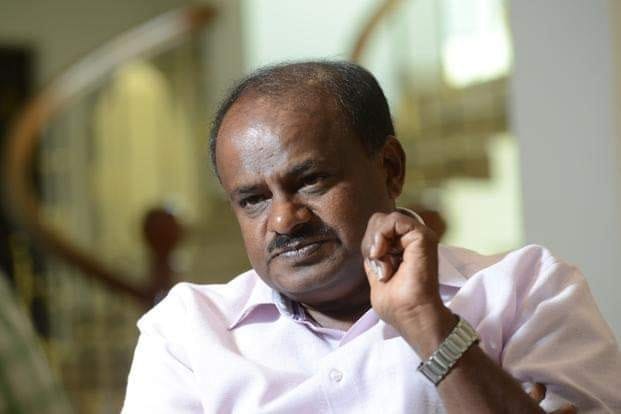Bengaluru: The H.D. Kumaraswamy administration in Karnataka has proposed tweaking the definition of a local person, reducing the number of years one has to spend in the state to become eligible for Kannadiga job quotas. Currently just a draft, the plan has stoked resentment among a section of native Kannadigas.
According to a draft notification issued for public comment late last month, a person has to have spent 10 years in Karnataka and developed proficiency in written and spoken Kannada to avail of Kannadiga quotas in private jobs.
It seeks to amend the Karnataka Industrial Employment (Standing Orders) Rules, 1961, which specified a domicile of 15 years for both government and private jobs, and language proficiency, besides requiring an applicant to have cleared Class X with Kannada as one of their languages.
In keeping with the Sarojini Mahishi report of 1986, Kannadigas are entitled to 100 per cent reservation in private and Group C and D government jobs.
The proposed rules seek to bring down the domicile requirement for private jobs to 10 years, while doing away with the Class X condition altogether, a fact that some Kannadigas say will deprive them of quota benefits.
‘Natives first’
While the government sector in Karnataka, home to India’s IT hub Bengaluru, does follow the quota recommendations, the private sector has been accused of not doing so.
Kannada Development Authority chairman S.G. Siddaramaiah said the government’s proposed plan would reduce opportunities for those who are “born Kannadigas”.
The notification, he added, diluted the Sarojini Mahishi report, which stated that, to avail of the quota, a person had to have lived in the state for “not less than 15 years” or studied Kannada as a language till Class X.
“They should immediately remove the amended clause and… make it [domicile] 15 years. There has been a huge influx of people from other states and that has reduced job opportunities for Kannadigas,” he said.
“At one point of time, close to 27 per cent of Bengaluru’s population comprised Kannadigas, now it has dropped to nearly 21 per cent… it also indicates that there is a drop in the number of Kannadigas getting jobs,” Siddaramaiah added.
Sociologist Chandan Gowda, a professor at Azim Premji University, Bengaluru, said there had been an increased influx of migrants in Karnataka.
“One is curious to know why the government has taken this step… It will force companies to conduct a demographic check on their employees, and the results may prove counter-intuitive,” he added.
“If statistics show that the number of Kannadigas is low, one could also try to find out the reason why they have been under-represented,” Gowda said.
Also read: HD Kumaraswamy is heading to Karnataka’s villages to ‘reconnect’ after Lok Sabha poll loss
Local businessman Sunil Jain traces his roots to Rajasthan, but told ThePrint that at least five generations of his family have called Bengaluru their home. Employing outsiders, he said, was something he had to do.
He said while he tried to seek out local youths for his clothing business, their reluctance to take up a private job forced him to look for migrants.
“They don’t want to do menial jobs… That is why we have to bring in cheap labour from other states,” he added.
Carl Avari, a director in a local real estate company who has spent 10 years in the state, said he sensed a lack of enthusiasm among native youths to settle for entry- or low-level jobs.
“Many aspire to either get a government job under reservations or work abroad. If Kannadigas are ready to work [low-level private jobs], companies will be more than happy to incentivise them,” Avari said.
Ravi Shekhar, an IT professional and native Kannadiga, said local talent should get preference “in any state”.
“Learning Kannada is important,” he added, “As it will help people communicate better.”
‘Still a draft’
Sources in the Karnataka government said the notification was a follow-up to a 2017 decision taken by the erstwhile Siddaramaiah cabinet to implement the Sarojini Mahishi report in its letter and spirit.
However, the decision fell to the backburner amid the 2018 Karnataka assembly elections and the political chaos that followed its fractured verdict.
The draft notification, the sources added, came as the Kumaraswamy government realised they could not put it off any longer, given that local pride is an emotive issue.
“There is still time to file objections. It is still a draft,” a government source told ThePrint.







Once upon a time my forefathers were farmers in Bangalore, lived and died as kannadigas in belendur and Devarabisnahalli. At the time of JDS government KAIDB occupied our farm lands and gave it to it sector by giving peanuts. All real-estate and political establishments made money for their lifetime. Many farmers didn’t know what to do with those peanuts.
They just snacked with liquor and left there children to do jobs at those same it companies as a house keeping, drivers and office boys.
Now they talk on kannadigas without shame.
Shame shame JDS.
A desperate attempt to create a vote bank for himself and his family members